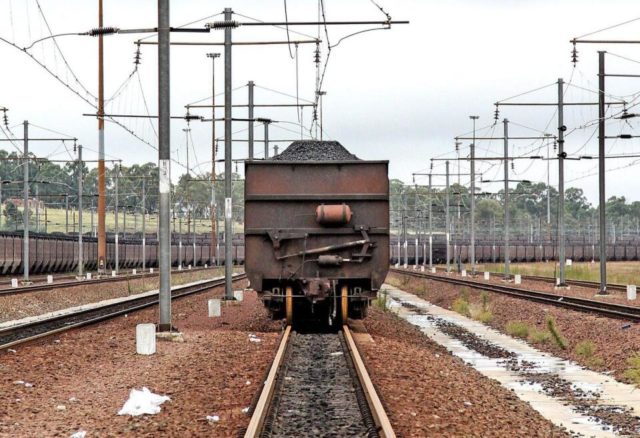Transnet Freight Rail has defended itself against criticism it is failing to spend on maintenance of its equipment and infrastructure, leading to operational inefficiencies that affect the whole rail industry.
TRANSNET Freight Rail (TFR) has defended itself against criticism it is failing to spend on maintenance of its equipment and infrastructure, leading to operational inefficiencies that affect the whole rail industry.
This comes after the African Rail Industry Association (ARIA) last week warned the South African rail industry was in trouble due to massive maintenance backlogs threatening the sustainability of Transnet.
ARIA, which represents mainly South African private sector suppliers, said it was concerned about TFR’s big cutbacks in essential maintenance over the past 10 years.
ARIA chief executive Mesela Kope-Nhlapo said TFR’s spending on maintenance had dropped by R750 million, from R3.4 billion in 2012, to R2.7bn in 2022.
Kope-Nhlapo said that over the same period, the salary bill had increased by R6.1bn, to R13.6bn, while the workforce had shrunk by about 3,800 people.
“ARIA’s analysis shows that over the last decade, there has been an accumulated backlog of maintenance expenditure of at least R27bn,” she said.
“The nature of maintenance in infrastructure and operations is such that if you don’t spend a rand on maintenance today, that infrastructure degrades exponentially, to the point where that rand becomes R5 in a few years’ time.”
Kope-Nhlapo also said TFR’s gross tons per kilometre metric – a measure of how effectively each locomotive is used – had dropped each year from 2017 to 2021 as more than 300 locomotives needed maintenance work.
“That means that in 2021, TFR is moving 33 percent less tonnage with the same number of locomotives as it did in 2017,” she said.
In its annual financial results last month, Transnet said it had finalised a number of key maintenance and infrastructure supplier contracts, which would increase the efficiency of maintenance programmes.
Transnet said a significant amount of work had been undertaken internally to improve procurement time frames for key contracts, which have been a significant cause of delay in the past.
TFR spokesperson Dikatso Mothae on Friday said they had been open about the group’s need to increase investment in infrastructure and spending on maintenance.
Mothae said the company has had to redirect a portion of its limited capitalised maintenance (Copex) budget to repair and replace assets affected by escalating security problems, theft, vandalism and derailments.
Mothae said that over the past five years, there had been a 179 percent increase in security-related incidents, including theft and vandalism of infrastructure, and a 1,067 percent increase in cable theft.
“Transnet is expected to fund its own infrastructure from its balance sheet, whereas globally most railways are subsidised by their governments in recognition of the role rail plays in their economies,” she said.
The White Paper on National Rail Policy provides for the government funding of rail infrastructure, but there is no timeline given.
“While this constraint impacts our ability to fully exploit the increasing demand for rail, the interventions TFR has put into place to deal with the maintenance backlog has started to show green shoots of improvement,” Mothae said.
“The infrastructure challenges are being addressed by prioritised Copex spend on key network sections, planned annual shutdowns, further shorter-term activities to uplift temporary speed restrictions to increase slot availability and capacity, and reconfiguration of operating models.”
– BUSINESS REPORT








